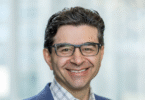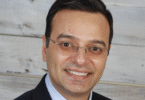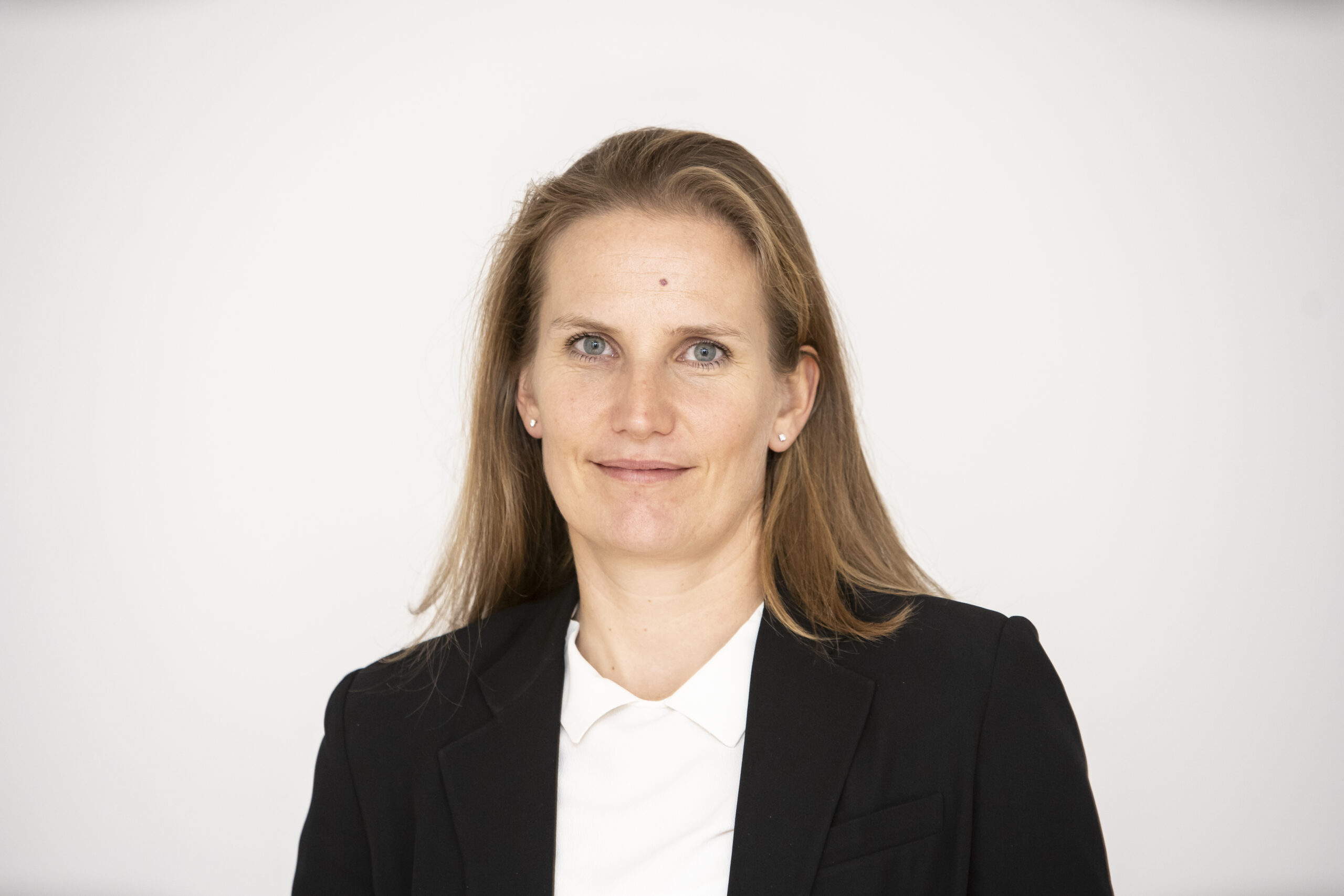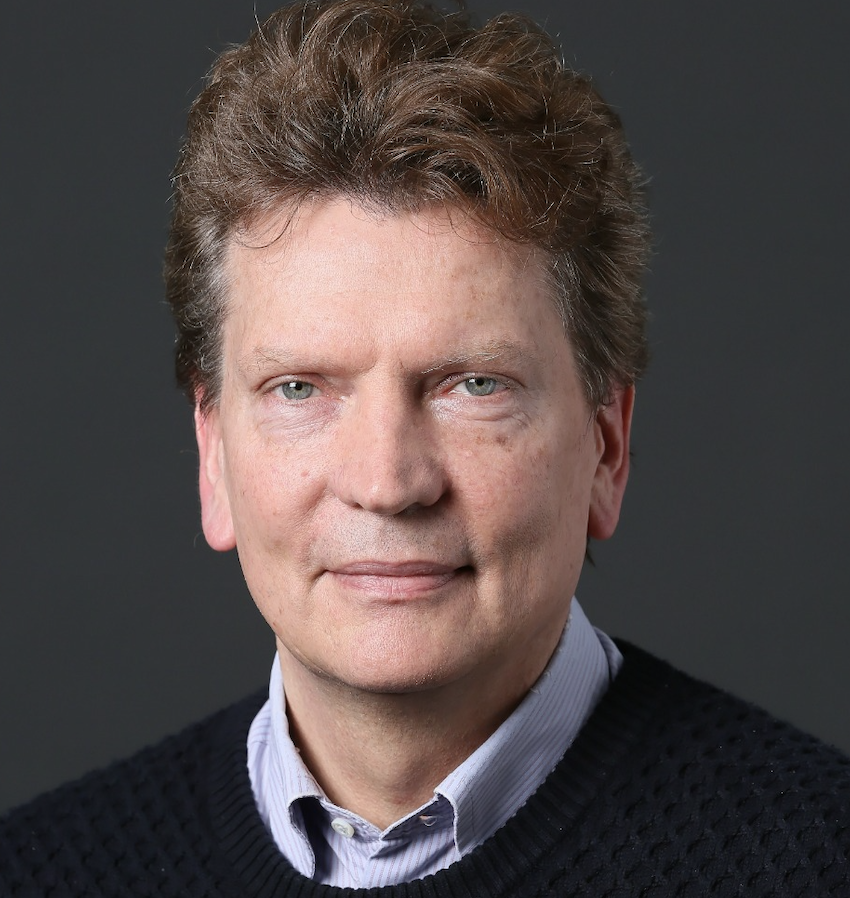Dr. Basma AlBuhairan is the Managing Director of the Centre for the Fourth Industrial Revolution Saudi Arabia, a World Economic Forum Affiliate Centre which supports the Kingdom’s Vision 2030. Her distinguished career highlights the growing influence of women leaders in Saudi Arabia.
Albuhairan is a healthcare professional and academic with extensive experience in healthcare transformation, innovation, and public policy. She was a member of the founding team at the Research, Development, and Innovation (RDI) Authority; led the Department of Pathology and Laboratory Medicine at King Abdulaziz Medical City, Riyadh (part of National Guard Health System), and was instrumental in establishing and commissioning the Department of Pathology and Laboratory Medicine at two National Guard hospitals in the Eastern Region of Saudi Arabia. She also co-established King Abdullah bin Abdulaziz University Hospital, where she served as Deputy CEO, and led the establishment of the Princess Nourah University Health Sciences Research Center. During her career she held leadership roles at IBM and the National Events Center, served as the Minister’s Advisor at the Ministry of Investment, and was instrumental in attracting leading global life sciences companies to Saudi Arabia while advising the Saudi Arabian General Investment Authority.
Albuhairan holds a PhD in public health and health services research from the University of Sheffield, as well as master’s degrees in molecular biology from Brown University and public health from the University of Sheffield. She serves on several international boards, including the World Economic Forum’s Global Future Council on Advanced Manufacturing and Value Chains. AlBuhairan recently spoke to the Innovator about Saudi Arabia’s quantum ambitions and how it is engaging with the World Economic Forum to achieve them.
Q: How is Saudi Arabia approaching quantum?
BA: The World Economic Forum published the Quantum Economy Blueprint at the annual meeting in Davos in January 2024. Saudi Arabia is the first country from the Forum’s Centre for the Fourth Industrial Revolution affiliate network to pilot the Quantum Economy Blueprint. The goal is to connect the Blueprint with Saudi Arabia’s’s unique strengths and ambitions. Recognizing the transformative potential of quantum technologies, Saudi Arabia is proactively preparing for the quantum era. The country is working to understand what an effective quantum strategy entails fully. It is looking at everything from the skills that are going to be needed to research priorities, to industry applications and governance frameworks. And at the same time, the work that we’re doing at the C4IR (Centre for the Fourth Industrial Revolution) Saudi Arabia, involves mapping the current Saudi quantum landscape, so understanding who the current players are, what sort of capabilities are already in place, where are the gaps, and to identify the opportunities.
Q: What are the country’s ambitions in this space?
BA: Frontier technologies are a cornerstone of Saudi Arabia’s Vision 2030, the country’s strategy launched in 2016 to diversify the economy and empower the citizens for a vibrant society, in line with the vision of Saudi Crown Prince and Prime Minister Mohammed bin Salman. It’s about increasing the private sector’s participation in the economy, enhancing the non-oil contribution to GDP, and becoming an innovative, knowledge-driven economy. In short, this means embracing new ways of working, including digital transformation and adopting advanced and frontier technologies in an ethical and safe manner. To support this transition, Saudi Arabia established the RDI Authority in 2021, which is responsible for overseeing and advancing the innovation research and development ecosystem in Saudi Arabia. It has a number of key objectives, such as policy regulation, funding, building linkages, and ecosystem development. This authority is overseen by the Supreme Committee for Research, Development, and Innovation, which is chaired by His Royal Highness Prince Mohammed bin Salman bin Abdulaziz Al Saud, Crown Prince and Prime Minister, a testament to the importance and support that the government has placed in research, development, and innovation. It’s an example of how executing Vision 2030 is not just a strategic document, it’s an active driver of change across Saudi Arabia. Vision 2030 has unified the nation around a shared sense of purpose,and its impact is widely felt, so much so that it is a common reference point in everyday conversations. While funding and incentives are essential, their effectiveness relies on having a collective vision, strong political will and support, and a complete ecosystem. Saudi Arabia’s success with Vision 2030 lies in its ability to unite stakeholders behind a common goal, translating ambition into tangible action.
Q: What is the role of the Centre for the Fourth Industrial Revolution (C4IR) Saudi Arabia in helping advance quantum technology in the Kingdom?
BA: The Quantum Economy Project is one of C4IR’s flagship projects. In this context, we collaborated with the Forum’s UpLink team to launch the Quantum for Society Challenge in 2024. This initiative sought impactful and scalable solutions for a sustainable future aligned with the UN’s Sustainable Development Goals. The challenge focused on leveraging quantum technology to address pressing issues in climate, materials and manufacturing, healthcare, agriculture, food systems, and freshwater systems.
We received 100 submissions, and the Top 10 Innovators were recognized at World Quantum Day 2025, celebrated on April 14th in Riyadh. These innovators were invited to Saudi Arabia, where, beyond an awards ceremony, we curated an in-depth ecosystem tour. This allowed them to gain broad insights into the Saudi innovation landscape, with special emphasis on quantum technologies. We aimed to encourage them to consider relocating or pursuing joint projects and collaborations with stakeholders across Saudi Arabia.
Several of these startups are currently engaged in discussions with various local stakeholders, and C4IR is closely following up to support these emerging partnerships. We maintain ongoing communications with the selected startups.
Everything we do at the Centre hinges upon the concept of collaboration. We have four specific work streams in the Quantum Economy Project. Different stakeholders run three different working streams from within our community of practice: King Faud University for Petroleum and Minerals is leading the one on access to hardware infrastructure and supply chain; Saudi Aramco is heading the working stream on open innovation and commercialization, and the Ministry of Communications & Information Technology is taking the lead on cybersecurity. We’re consolidating these efforts.
Additionally, we released the Quantum Economy Landscape Report in January 2025, which provides a comprehensive overview of the quantum economy ecosystem in Saudi Arabia. To further document our progress, we also developed the World Quantum Day Wrap Report 2025.. We have also launched a series of monthly quantum-focused webinars as part of our ongoing efforts to raise awareness. All these efforts—challenges, the working groups, reports, and outreach—are integral to the awareness activities and ecosystem development initiatives led by C4IR Saudi Arabia. The strength of the Forum’s C4IR networks lies in the fact that centres can learn from one another and adapt and iterate according to their specific contexts.
Q: What, in your opinion, are the Kingdom’s strengths in quantum?
BA: One is around vision alignment. We have a clear vision to move towards a knowledge-based economy as part of Vision 2030. We also have robust government support for R&D, and we have strong institutions already in place, such as King Fahd University for Petroleum and Minerals, King Saud University, and King Abdullah University for Science and Technology. King Fahad University for Petroleum and Minerals has a quantum computing lab and an optics Lab. In addition, the university’s intelligent secure system center has plans for superconducting quantum circuit, quantum emulation, and quantum communication labs. King Saud University has established a center of excellence in information assurance, focusing on information security and post-quantum cryptography.
Additionally, there are labs focused on classical technologies that can potentially be leveraged for quantum research and development. For example, King Saud University houses the RF photonics laboratory, which combines radio frequency (RF) and photonics, and is equipped with state-of-the-art equipment for fiber optic communication and sensing applications. In May 2024, the Research Development Innovation Authority and stc Group, our main telecom operator, announced a public-private partnership R&D initiative focused on open radio access networks and quantum computing. The Kingdom also has leading companies, such as Saudi Aramco, which are taking bold steps to bring quantum capabilities into critical sectors. Aramco has publicly announced partnerships with Pascal (a French startup focused on neutral atom quantum computing) to install the first quantum computer in the Kingdom and with IBM to leverage emerging technologies in hybrid cloud, AI, and quantum. Most importantly, the country has the necessary political support and will.
Q: What advantages does Saudi Arabia hope to gain by creating a quantum economy?
BA: There are three key advantages: economic diversification, quality jobs creation, and quantum-ready cybersecurity. Our ambition is quite clear: we aim to position Saudi Arabia as a regional leader in quantum technologies, while laying the foundations for sustainable economic growth. By fostering a quantum economy, we can broaden our industrial base, provide future-ready, quality employment for our workforce, and, critically, build sovereign capabilities, especially in the realm of cybersecurity. Moreover, quantum technologies have the potential to address national priorities in sectors such as energy, healthcare, and logistics. Quantum computing can unlock innovative solutions to complex problems that traditional computing cannot solve, enabling us to tackle challenges across these vital industries.
Q: What are some of the challenges to developing a thriving quantum economy in Saudi Arabia?
BA: The challenges we’re facing are shared by many countries, but there are six key areas Saudi Arabia must address directly. First, we need to expand our talent pool; developing more quantum scientists, engineers, and specialists is essential, especially given the global competition for this expertise. Second, although we’ve made solid progress, infrastructure gaps remain. We require more specialized laboratories, quantum foundries, and coordinated R&D efforts to advance hardware innovation. Third, commercialization is still at an early stage. We must focus on converting research strengths into practical applications, technology spin-offs, and industrial adoption. Fourth, the global landscape is intensely competitive. To secure our place, we need reliable access to critical technologies and greater resilience in our supply chains. Fifth, the cybersecurity implications of quantum technology are profound. We must stay ahead by implementing quantum-safe cryptography and safeguarding sensitive national data. Finally, strong governance and public awareness are vital. Aligning all stakeholders behind a unified national roadmap and increasing understanding across government, industry, and society is crucial. This must be a coordinated, focused, and collective effort.By overcoming these challenges, Saudi Arabia can establish itself as a regional hub for quantum technology, delivering tangible benefits to both our economy and our people.
Q: What do you think other countries can learn from Saudi Arabia’s approach?
BA: Early strategic alignment and visionary commitment are critical. Integrating frontier technologies into the country’s broader strategy demonstrates how these innovations can be positioned as national priorities, not just isolated research or development initiatives. Another key lesson is that building a robust ecosystem demands ongoing effort, patience, and perseverance. Success depends on connecting talent, research, and industry. Saudi Arabia’s experience shows that developing quantum capabilities goes far beyond simply establishing research centers. It also requires cultivating a talent pipeline that begins in grade school and extends through university and advanced degrees, with continuous opportunities for upskilling and reskilling. Supporting this pipeline means fostering strong public-private partnerships and linking both national and local stakeholders with leading global experts. This comprehensive, integrated approach ensures the ecosystem generates tangible economic value and practical applications. Ultimately, sustained political will and support are essential to realize these ambitions.
This article is content that would normally only be available to subscribers. Sign up for a four-week free trial to see what you have been missing.
To access more of The Innovator’s Interview Of The Week articles click here.







